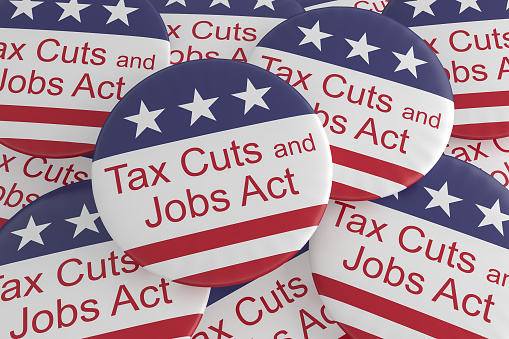The Tax Cuts and Jobs Act, or TCJA, went into effect in 2017. However, that’s basically all that anyone knows about it. This makes sense because taxes are hard to understand, which is why most small business owners hire an accountant to handle their financials.
However, it’s important that you at least know the basics of the TCJA because the changes to the federal tax code may have an effect on your business.
What is it?
First of all, this is a federal tax code that was signed into law in December 2017, reducing the top corporate income tax rate to 21%- previously, it was 35%. However, this only applies to c-corps. Some other changes affected s-corps, partnerships, and sole proprietorships, reducing the max tax rate for specific taxpayers to 29.6% from 37%.
You would think from these numbers that it would benefit your business. After all, a lower tax rate means you keep more of your revenue- increasing your profitability. However, because of some of the other changes, it hurts more than helps.
What does it mean for small businesses?
There are several ways that the TCJA may affect your small businesses and if you are shocked or concerned by them, you’re not alone. Here’s how it may affect your small business:
- Lower tax payments- in some cases
- Lower interest deductions
- Lower net operating loss deductions
Expectations Versus Reality
One survey indicated that most taxpayers were not prepared for the TCJA. The information also indicated that tax professionals did not let their clients know about the changes prior to the deadline.
The survey involved 1,002 adults in the USA regarding their thoughts on the TCJA and how it affected their 2018 tax returns. Many of them had high hopes for the TCJA, but there were some aspects that disappointed them:
- Tax refunds were much smaller than expected
- Taxpayers were confused by the changes
How were tax debts and refunds affected?
In regard to paying back debts to the IRS, over half of the higher-income households stated they would withdraw money from their checking/savings account to cover the difference. For households with an income under $100,000 receiving a tax refund, 38% planned to save it and 23% planned to spend it.
The poll also asked how they planned to use their refunds- 22% planned to reduce debt and 15% planned to establish an emergency fund. These were also high priorities for high-income households.
How to remain compliant with TCJA
Due to all of the changes brought on by the TCJA, you may feel uncomfortable when tax time rolls around. However, online tax platforms are updated on a regular basis to align with the latest tax codes. Of course, you can always hire an accountant to file your taxes- they can use their expertise to help reduce your tax liability. Plus, they are a real person that you can contact when you need help.
Contact Rexford Commercial Capital if you need help understanding the TCJA or if you need help with your taxes. We will help you make sure that you remain compliant so that you reduce your risk of audit.


